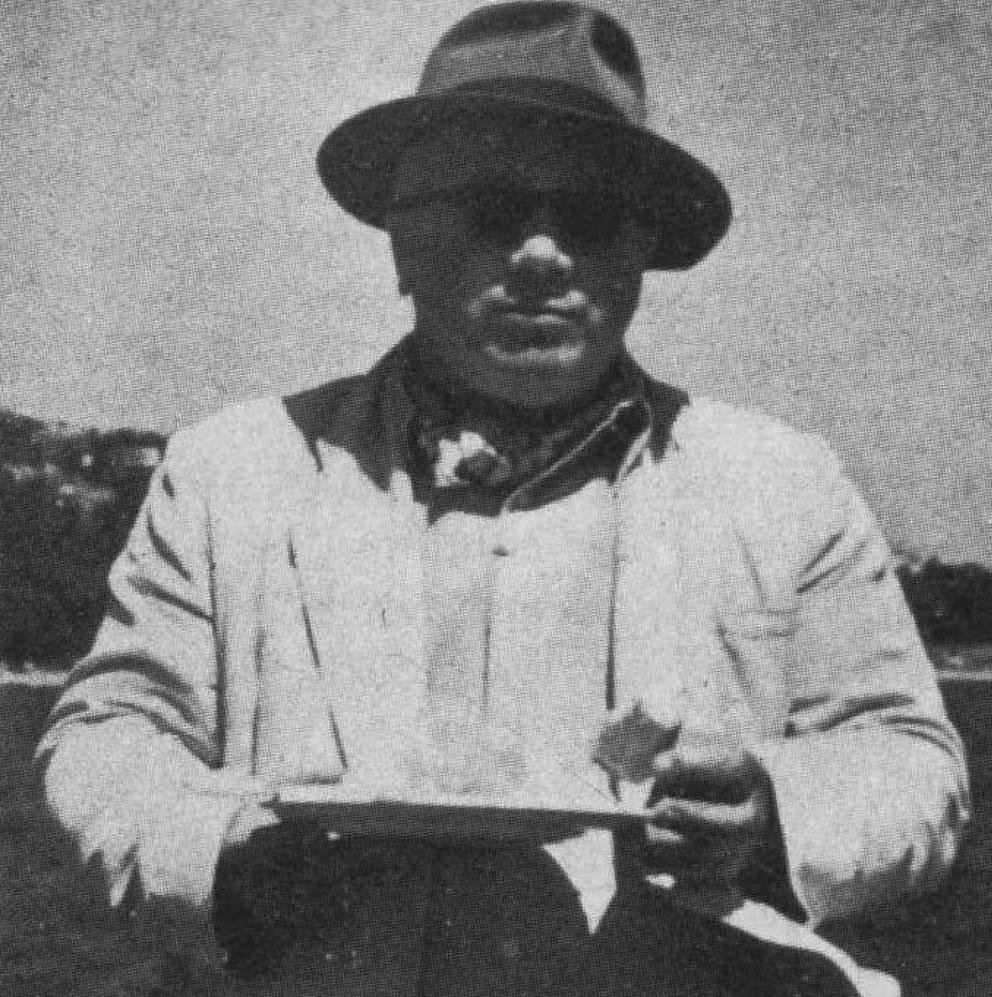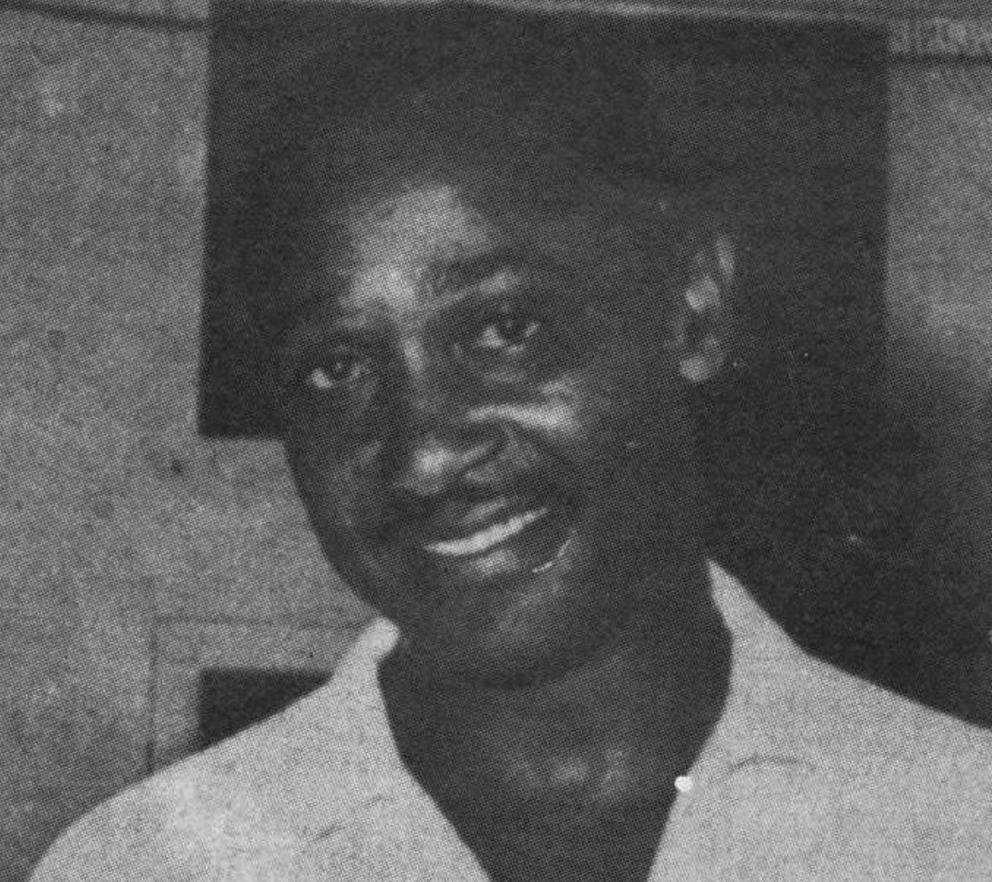Jim Laker had rich experience touring India in the early 1950’s. My Indian tour profit was £100. In Jim Laker’s rich experiences on a six-month tour in India, one of the more memorable sights after the Taj Mahal in the moonlight was that of George Duckworth in the early morning. In those days, the great Lancashire wicketkeeper had reached his half-century in both age and waist measurement.
A large portion of the latter descended over his knee-length shorts, covered by a shirt which had probably last seen an iron back in Warrington. His half-moon spectacles perched precariously on the tip of his Duckworth. He did everything himself as he paraded the six bearers under his command before checking the fitness of the 16 players he had invited to form his Commonwealth side. Nowadays, we have overseas tours committees, selection committees, PROS, managers and assistant managers, travel agents and physiotherapists all combining to organize three months in India, not to mention such modern facilities as telecommunications, direct flights, and luxury hotels. George very simply did everything himself.
He was the sole selector, arranged the shipping berths, checked the playing itinerary, approved the travel arrangements, audited the accounts, and even managed to write a plausible account of each day’s play for the local Press. Bear in mind, too, that the Commonwealth sides left Tilbury in the middle of September, returning only at the end of March. Six long months and a program that contained 30 fixtures, including five unofficial ‘Test matches’. We left Tilbury in 1950, the day after MCC departed for Australia under Freddie Brown, and docked in Port Said a day ahead of them (which seemed par for the course when you consider the respective sides).
Once again, ‘Duckie’ had done a superb job as selector, bearing in mind that MCC obviously had first choice of English players. He was shrewd enough to realize I felt personally aggrieved at missing out on Australia. – My 166 wickets at 15 that summer seemed slightly better than England’s first-choice off-spinner with just 20 wickets at 19 (Brian Close.), so I jumped at the chance to join a spin attack in India with Sonny Ramadhin, who had just mesmerized England, and two of the best wrist-spinners of any era, Bruce Dooland and George Tribe.
Meanwhile, we had sorted out five of the best stroke players around, led by Les Ames and including Harold Gimblett, George Emmett, Laurie Fishlock, and the immortal Frank Worrell. It was only natural that Lancashire were well represented by Jack Ikin, Ken Grieves and Alf Barlow as deputy keeper to Dick Spooner. Two bowlers, so ‘I jumped at the chance to join a spin attack of Ramadhin, Dooland, and Tribe…’ long under the shadow of Alec Bedser in Les Jackson, and Derek Shackleton, together with Kent’s Fred Ridgway, were to share the new ball.
On reflection, I believe it to be the finest side with which I ever took the field, and not surprisingly, we remained undefeated over six long months. The leading six batsmen all passed 1000 runs, with Frank Worrell making 1900, and the three most successful bowlers were averaging well over 30 overs per match. Times were hard in India the year after Partition. Prohibition reigned throughout the province of Bombay, and a liquid diet of lemonade and ginger beer for six weeks after a day with temperatures reaching three figures was hardly stimulating.
The pre-war days of the opulent and wealthy maharajas had gone forever. With few hotels of any standing, accommodation often took the form of the maharaja’s ‘guesthouse’. Several of these had not been used or even opened since, goodness knows, when. Baroda proved to be a case in point when Jack Ikin and I had to chase a couple of monkeys out of our room before settling in. It appeared that they had been the previous occupants.
The greater part of our travel took the form of secondhand two-engine Dakotas, and there was no shortage of thrills, particularly when clearing a brick wall by the small matter of a couple of feet. I swear, I watched Frank Worrell turn white! a Included in our journeys was a memorable train epic when I accompanied the bearers and the team’s luggage for 1200 miles from Dehra Dun to Poona. Two nights and two days on a wooden-slatted seat with barred windows and no corridor. There is nothing in the way of washing facilities, and only infrequent dishes of a local variety.
The Poona Hotel appeared to me like the Dorchester, but sadly, on arrival, there was no bath, shower, or even hot water. I stripped around the back, and Ikin and Co. poured buckets of cold water over me in an effort to shift 48 hours of caked filth and travel grime. Frank Worrell: 1900 tour runs, including 285 against Ceylon at Colombo So much has changed now for David Gower and his boys, but at least in one respect, nothing has altered very much. In our game at Dehra Dun, the local umpire trapped our first five batsmen, LBW.
I then foiled his bid for all ten by losing my middle stump first ball, but he hit back and accounted for two more, allegedly to catch behind the wicket. Whatever the eventual outcome of this present tour might be, at least a few will be smiling all the way to the bank. Mind you, 30-odd years ago, my bank manager welcomed me back with open arms when he realized my £100 net tour profit was sufficient to clear that overdraft at last.


